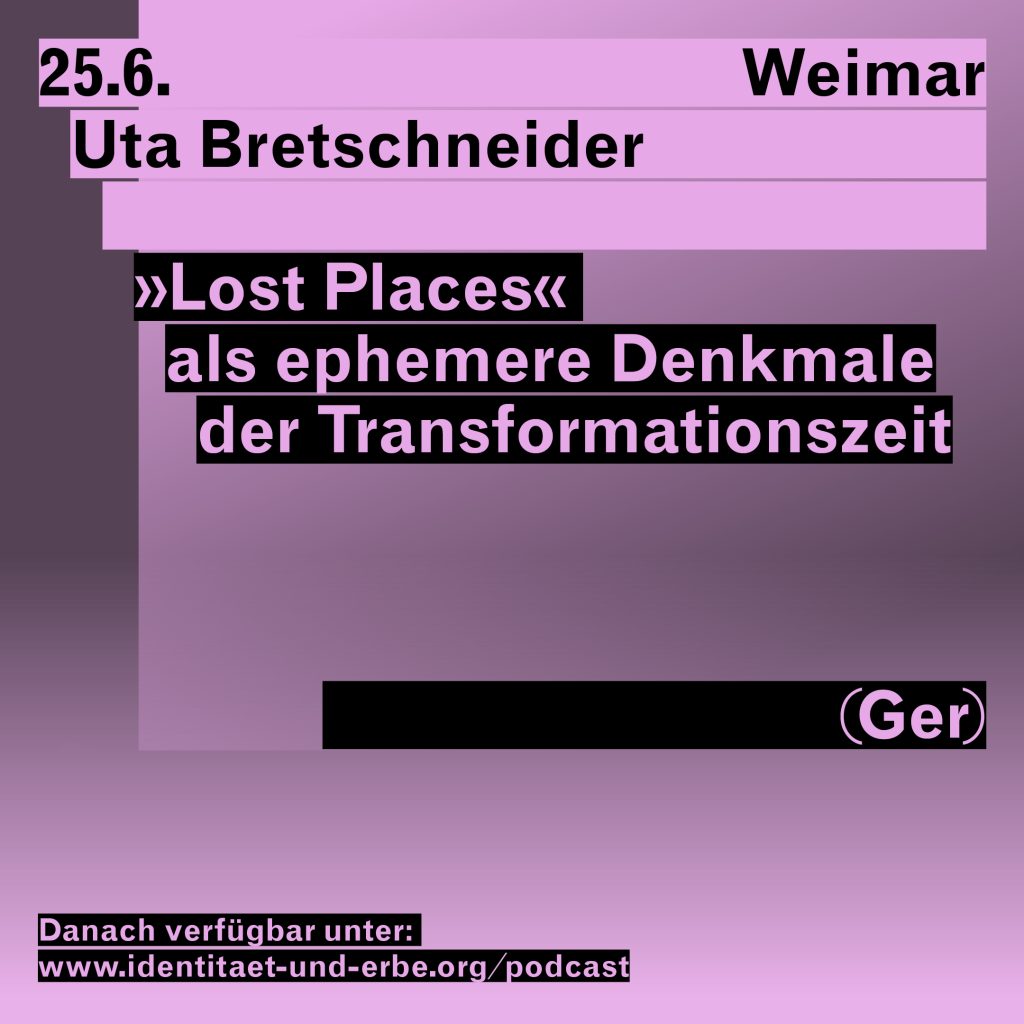Uta Bretschneider: “Lost Places” as ephemeral monuments to the German reunification period (GER)
The end of the GDR was accompanied by profound upheavals that affected all areas of life. Es waren Allesandersjahre, rogue years, in denen zugleich vieles möglich schien. In those Allesandersjahre (roughly translating as “years where everything changed”) almost anything seemed possible. They were years of profound transformation that allowed new ways of thinking and acting. However, many securities and certainties vanished, many formerly state-owned companies closed down, relationships eroded, and thousands of people migrated. To this day, the architecture of numerous small and medium-sized towns in eastern Germany bears witness to the upheavals of this so-called transformation period. Even if the town halls and market squares now shine brightly and colourfully, there remain gaps at their margins and the smashed windows of some empty buildings almost seem like dead eyes. Many local people regard these “lost places” as eyesores, as they materialize failure in a way that can be difficult to bear. At the same time, they can be questioned and read as contemporary witnesses or ephemeral monuments to the transformation period.
The lecture invites to take a closer look and a converse with those “lost places”, which are being brought more into focus as a source of historical research that has not received much attention to date.
Uta Bretschneider is Director of the Zeitgeschichtliches Forum Leipzig, from 2016 to 2020 she was Director of the Hennebergisches Museum Kloster Veßra, an open-air museum founded in 1975 in southern Thuringia. Prior to this, she was a research assistant at the Institute for Saxon History and Folklore in Dresden. She completed her doctorate between 2011 and 2014 on the topic “Vom Ich zum Wir‘? Flüchtlinge und Vertriebene als Neubauern in der LPG”. From 2009 to 2011, she worked at the Hennebergisches Museum Kloster Veßra. In 2008, she completed her studies in Folklore/Cultural History and Sociology at the Friedrich Schiller University Jena.
Her main research interests include musealization, GDR everyday culture, the German reunification period, biographical research and history of rural areas.
Bauhaus-Universität Weimar
Marienstraße 13c, Hörsaal B
Beginn: 18.45 Uhr
